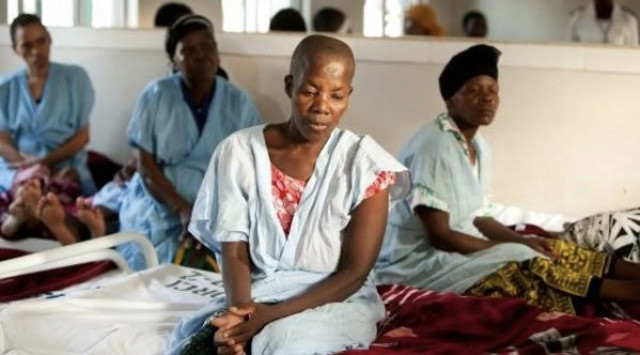ABUJA,Nigeria (NAN)- The Nigerian Cancer Society announced on Friday in Abuja its commitment to initiate an extensive cancer awareness campaign aimed at enhancing public understanding of the disease.
During a media briefing, the society’s President and CEO, Prof. Abidemi Omonisi, criticized the inadequate spread of cancer information, especially in rural areas.
This meeting was one of the activities in observance of the 2025 International Day for Cancer. Prof. Omonisi expressed significant concern regarding the low level of cancer awareness in rural regions, where the majority of Nigerians reside, emphasizing how this results in late diagnoses and restricted access to timely treatments.
He articulated that under his leadership, the NCS would implement a proactive awareness campaign in rural communities and translate educational resources into prominent local languages. The initiative aims to close the knowledge gap concerning cancer, which is most prominent in these rural areas.
Prof. Omonisi also criticized the ineffectiveness of Nigeria's national cancer registry system, highlighting that scientific progress relies on data, making cancer registries vital for prevention and control efforts.
He pointed out the increasing cancer burden in Nigeria and stressed the necessity for a robust surveillance system to evaluate the scope of the issue and monitor control strategies.
He remarked that population-based cancer registries are essential for effective surveillance and planning.
"For the first time in 65 years of cancer registration in Nigeria, the Federal Government, through NICRAT and the Lagos University Teaching Hospital, established a Childhood Cancer Registry in 2023," he stated.
He also mentioned that Nigeria holds the highest number of population-based cancer registries in sub-Saharan Africa, with five contributing to the most recent Globocan 2022 global statistics. These registries, situated in Abuja, Calabar, Ekiti, Ibadan, and Ilorin, supply data utilized by the International Agency for Research on Cancer (IARC-WHO) to compute cancer incidence rates.
Prof. Omonisi recognized the accomplishments of registry directors and staff but expressed disappointment over inadequate government funding, noting that many registries depend on self-financing.
He identified significant hurdles in cancer registration, such as insufficient funding, lack of skilled personnel, poor data coordination, and inadequate infrastructure. Additionally, he condemned the emigration of oncology professionals seeking better opportunities abroad, labeling it a crisis for Nigeria's healthcare workforce.
He also criticized the exorbitant costs of cancer treatment in Nigeria, asserting that it remains financially unfeasible for many patients who rely on out-of-pocket expenses.
Prof. Omonisi encouraged Nigerians to engage seriously with the National Health Insurance Authority's enrollment, indicating that relying solely on personal finances is disheartening for numerous patients.
He acknowledged the Federal Government’s efforts in establishing the National Cancer Health Fund (NCHF) but described the current financial allocations as insufficient.
Specifically, he pointed out that only ₦150 million was set aside under "Counterpart Funding for Cancer Health Fund" (ERGP25227378) and ₦50 million for "Counterpart Funding for Childhood Cancer Health.” He argued these allocations are inadequate compared to prior budgets, representing a significant setback for cancer care in Nigeria.
“A patient diagnosed with HER2-positive early-stage breast cancer requires ₦16.8 million for PHESGO treatment within a year, excluding additional expenses for laboratory services, surgical procedures, and support care,” he warned.
He cautioned that the anticipated 2025 budget for the Cancer Health Fund would only support around 22 patients nationwide.
Prof. Omonisi concluded by urging for increased funding in the 2025 budget to assist underprivileged cancer patients, who constitute more than 70 percent of those affected in Nigeria.




















